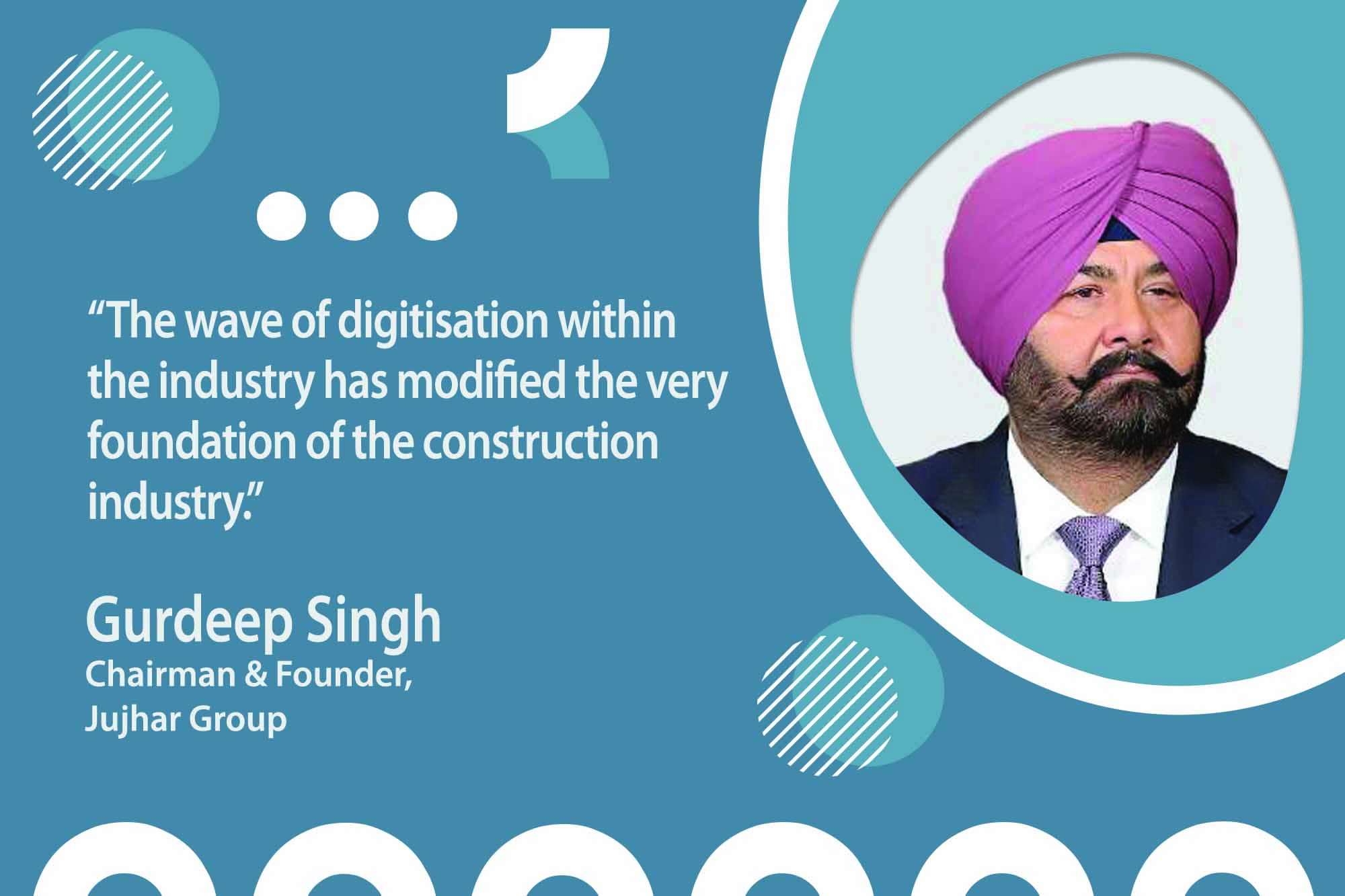This article elucidates how digital solutions are revolutionising project management, enhancing collaboration, and paving the way for a more efficient and sustainable future in construction.
We are living in an era where change has become constant. Thus, industries across domains have embraced technological advancement to stay ahead of the curve, with the construction sector no exception. Traditionally reliant on manual labour and facing various challenges, the construction industry has undergone a significant paradigm shift with technological advancements, promising unprecedented efficiency, productivity, and innovation. From building information modelling and cloud-based management software to the adoption of IoT and geospatial technology, the wave of digitisation within the industry has modified the very foundation of the construction industry.
According to the Union Minister for Road Transport and Highways, India’s construction sector, currently ranked third in the world, has the potential to catapult to the top spot within the next five years, showcasing the sector’s immense growth potential. In fact, according to the report by Mordor Intelligence, the Indian construction industry is expected to develop at a 6 percenyt CAGR between 2024 and 2029. As a result, by embracing digital transformation, the construction sector can optimise processes, decrease errors, improve stakeholder communication, and complete projects on time and within budget. Furthermore, digital transformation enables data collection and analysis, allowing for more informed decision-making and resource allocation. As a result of the increased traction and benefits, incorporating digital transformation into the construction industry is redefining efficiency and productivity.

Here, let’s delve into the details in which the construction industry is embracing digital transformation for enhanced efficiency and productivity:
Building information modeling (BIM): The construction industry is undeniably known for its complex projects and planning. However, this aspect has witnessed dramatic shifts with the integration of technology. Among numerous digital tools, BIM emerged as a game changer, allowing construction firms and stakeholders to create and manage the project’s physical representation. In addition, the introduction of BIM also encourages collaboration among architects, designers, and builders, resulting in improved project planning and design.
IoT and smart construction: With the adoption of digital tools, the industry is transforming into a smart and modern ecosystem. This is where, among various technologies, IoT devices and sensors appeared as trailblazers, allowing them to make better decisions on various parameters such as worker safety, equipment performance, and material usage. This will enable stakeholders to monitor project progress, identify potential issues before they escalate, and optimise resource utilisation. Smart construction technologies powered by IoT enhance safety, efficiency, and sustainability on construction sites, ultimately driving productivity gains across the industry.
Developing cloud-based management software: In today’s era, cloud-based project management software is changing how construction projects are planned, coordinated, and performed. These software solutions enable real-time collaboration and communication across project teams, regardless of their physical location. By centralising project data and documentation in the cloud, stakeholders have immediate access to vital information, enabling faster decision-making and proactive problem-solving. In addition, cloud-based management software also allows for seamless interaction with other digital tools and technologies, which boosts efficiency and productivity on construction sites.
Integration of geospatial technology: Geospatial technology, which aids in precise mapping and planning, is undoubtedly important in modernising the construction industry while increasing efficiency and productivity. Thus, using geospatial data, construction businesses can perform site analysis, assess environmental impact, and organise logistics more successfully. Furthermore, geographic information systems (GIS) technology allows stakeholders to see spatial relationships and make more informed decisions about site selection, route design, and resource allocation. Furthermore, by incorporating geospatial technology into their operations, construction businesses can reduce risks, save costs, and increase overall project efficiency.
Technological advancement: Driving growth in the construction sphere!
According to McKinsey Global Institute, digital transformation can increase productivity by 14–15% while cutting costs by up to 4–6 percent . As a result, it is safe to say that adopting digital transformation in the construction industry promotes overall growth and competitiveness while also improving efficiency and productivity. Furthermore, as construction organisations embrace technological improvements, they create new avenues for creativity and differentiation. Thus, by leveraging technology, the construction sector can certainly attain better efficiency, productivity, and sustainability in the next few years.
Cookie Consent
We use cookies to personalize your experience. By continuing to visit this website you agree to our Terms & Conditions, Privacy Policy and Cookie Policy.





















